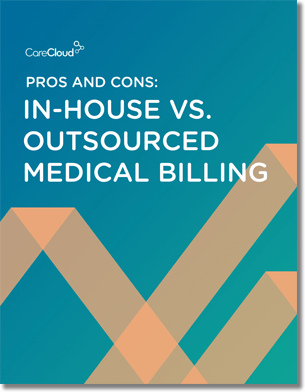Billing by a physician is usually called “Professional Billing,” and billing by the hospital is known as “Institutional Billing.” It’s very important for those who work in healthcare and patients to comprehend the contrast between doctor and hospital bills. Now, let us delve into the complexities of these billing methods and explore the wider realm of medical billing and coding.
Physician Billing vs Hospital Billing: Exploring the Differences
Regarding medical expenses, there are two kinds of bills that patients usually see: Physician Billing vs Hospital Billing. The variation in these bills comes from the diverse services offered by healthcare professionals and medical facilities. A bill from a doctor mostly shows the services given by individual healthcare practitioners. In contrast, a bill from a hospital covers more things, such as institutional services, equipment, supplies, and skilled nursing care.
A Breakdown of Physician Billing
Doctors play a big part in caring for patients; their billing job is not only about providing medical services. The process for doctors to bill includes recording and coding the services they gave checking that the electronic CMS-1500 form (a usual claim form used a lot for medical billing) has correct details.
The billing form for doctor services, CMS-1500 or 837-P, is used to make claims. CMS-1500 acts as the paper version, and 837-P is its electronic form.
Medical billing and coding professionals manage administrative jobs like procedure coding, insurance verification, and claim submission. The precision of this activity is critical for getting paid on time and managing the full income cycle. Physician billing is a process related to insurance companies. Medical billers make sure claims are submitted correctly and accepted by the insurance.
What is Physician Billing Services?
The aim of physician billing, also called professional billing, is to submit claims for payment on behalf of physicians or healthcare providers who have provided medical services or procedures to patients with healthcare insurance coverage. The form employed in this process for billing the claims is CMS-1500 or 837-P. The only distinction between these forms is that one exists as a paper version (CMS-1500) while the other (837-P) constitutes an electronic variant; besides this contrast, both are identical.
Physician billing is a crucial procedure that manages many administrative duties linked with medical practices, such as fixing appointments, welcoming patients, checking in and registering them for services or treatments, and collecting client payments. The services billed under physician billing are inpatient and outpatient and fall into the areas of inpatient service that can be billed after patient verification.
It is very important to verify, as the inpatient and outpatient services that are extremely selective will receive billing based on the patient’s insurance policies. This implies that those handling medical billing must be knowledgeable about billing and coding. Nonetheless, a team exists specifically designated to accomplish everyday billing tasks at healthcare practitioners’ offices or hospitals.
What are Hospital Billing Services?
Hospital billing includes invoicing for services provided by skilled nurses, too. It also includes bill claims for laboratory services, medical equipment and supplies, radiology, etc. Hospital billing is done using claim form UB-04 or 837-I form. The UB-04, the paper version, and the 837-I form remain electronic. Here, “I” represents institutional configuration. The difference between physician and hospital billing is that hospital or institutional billing only deals with the medical billing process and not medical coding. However, physician billing includes medical coding and submitting claims to insurance companies.
The medical biller for hospitals does billing and collections tasks only. Hospital billing is very different from physician billing. Boosting revenue with physician billing and hospital billing. The differences between physician and hospital billing remain regarding revenue payments or raising revenue reimbursements. However, their processes are very important in stopping denials and dishonest actions.
Physician billers make sure there are no claims or services that go unbilled or missed. The staff must be aware of billing and coding mistakes while filing claims. Of all the errors, some are caused by many reasons, one of which might be technical errors. As the top choice, hospitals and health providers prefer to outsource physician billing and hospital billing services to avoid mistakes and loss of payment.
Hospital billing will have unique tasks, not the same as physician billing. The major functions of institutional or hospital billers are the accomplishment of collections and charge of billing. Hospital coding is seen as very complicated compared to physician coding. This is why only coding experts handle institutional cases.
How Does Hospital Billing Work?
Hospital billing is about creating healthcare claims for billpayers. These include the medical services given by healthcare practitioners and hospitals, both outpatients and inpatients. The hospital billing job is a crucial part of the revenue cycle for any hospital. Payers also receive bills for the facilities provided by a healthcare organization. This comprises charges for employing special medical equipment or conducting laboratory tests, among other items.
Conclusion
Physician billing services are about managing the task of billing claims for medical help rendered by physicians or healthcare providers to patients who have insurance coverage. The effort to increase revenue through physician and hospital billing is not the same. Billers on the side of a doctor need to make sure there are no claims or services left without being billed, but they also watch out for errors in coding and billing. Hospital billing is a more complex area, and specific knowledge of billing and collections is needed. Outsourcing can assist in avoiding mistakes and decrease revenue loss for physicians and hospital billings.



